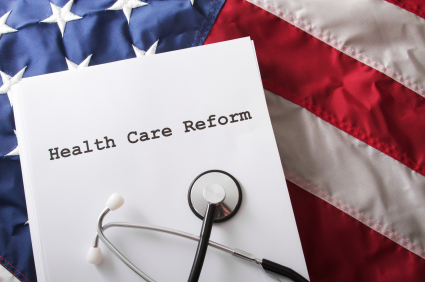Incase you live under a rock and don't know what ICD-10 is, well... it's the abbreviation for the 10th version of The International Classification of Disease - a universal system of coding (first created in 1983 and completed in 1992) used by physicians and other healthcare providers to classify and code all diseases, diagnoses, symptoms, abnormal findings, procedures, and external causes of injury recorded in conjunction with hospital care in the United States.
Read More
Topics:
ICD-10,
ICD-10 compliance,
Training,
reasons to prepare,
coding
Financial Woes
According to some finance analysts, Valentine’s Day is the number two holiday after Christmas that leaves retailers smiling all the way to the bank and customers crying foul because they spend a lot of cash trying to impress their loved ones - the flowers, personalized gifts, dinner, candy, chocolate and rings for those who propose on this day. While it is perfectly alright to treat your lover dearly on this day, it is also wise to do it in a way that leaves both of you happy even after the romance dies out. We are going to look at some causes and sources of financial turmoil on Valentine’s and how to avoid them. It is also good for you to have some tips on saving your finances on this special day.
Read More
Topics:
cost protection,
financial savings
Statistics have it that hospitals actually collect only 30% of patients’ balances with some even collecting less than that.
If you are in charge of your hospital finances you need to know why this is happening and how to fix it.
Hospitals are single-handedly the most difficult to manage institutions in any economy because of their complex organization and the fact health professionals are not expected to be business oriented. Health care professionals in finance and general accounts personnel face various challenges in revenue cycle management and often have to outsource third party medical billing services to cater to their needs. Patient collections after insurance claims have been paid is especially tasking because of the poor strategies geared towards collecting the funds.
Read More
Topics:
patient protection,
Patient Pay,
A/R Management
What is this fiscal cliff that is being perceived by many as some financial Armageddon that is threatening the American economy by the beginning of 2013?
Among others, the culprit is a combination of expiring tax cuts and mandated Federal spending cuts that is sure to run havoc to American industries. The sectors that are at most risk are defense and the health care industry.
Read More
Topics:
fiscal cliff,
healthcare receivable management
Patient Satisfaction is a real hot topic in the healthcare industry these days. For obvious reasons, keeping patients satisfied has always been a top priority for healthcare providers. However, in addition to the already known risks of earning a bad reputation or losing patients to competitors, there's now the added risk of hazards like reduced reimbursement rates.
Read More
Topics:
patient satisfaction,
vendor management,
healthcare receivable management,
healthcare,
patients,
customer service
“Tone at the top”
Tone at the top is accounting language that was developed to evaluate and address the business ethics of an organization. It’s smart language because when something bad happens inside an organization, the definition differentiates the actions of a rogue employee vs. the modus operandi of an organization’s leaders.
Read More
Topics:
change management
I just attended a conference as one of many vendors soliciting services to healthcare providers. Many decision makers who attended the conference talked about initiating a request for proposal (RFP) to organize and manage their vendor selection process. The event got me thinking about my own experiences with vendor selection processes. I wrote this blog to share my perspective.
Read More
Topics:
Risk Assessment
Beginning on October 1, 2012 several healthcare reform measures will kick in.
One reform measure hospitals have been preparing for is value-based purchasing, which is where hospitals will receive Medicare-reimbursement scores based on the level of care they deliver (patient satisfaction). This means that if a hospital receives low patient satisfaction scores, there will be reductions in Medicare reimbursements.
Read More
Topics:
hospital patient satisfaction
What’s one of the best ways to improve your organization’s cash flow? Accelerating and maximizing collection of accounts receivable, of course! In most organizations, increase in the amount of capital to fund investments in technology, people, and training depends on accounts receivable collections.
Read More
Topics:
Patient Pay,
A/R Management
Healthcare reform impacts
On March 23, 2010, the President signed into law what is known as Patient Protection as well as Affordable Care Act of 2010. In addition the Health Care and Education Reconciliation Act was signed into law a week later on March 30th 2010. Both acts are referred to collectively as “PPACA”. Although most of these legislative changes are not going to take effect until 2014 or even much later, a number of provisions are self-implementing and as a matter of fact took effect immediately.
Read More
Topics:
Hospitals,
ACA,
PPACA,
patient protection,
affordable care act,
debate,
congress,
Healthcare Reform














